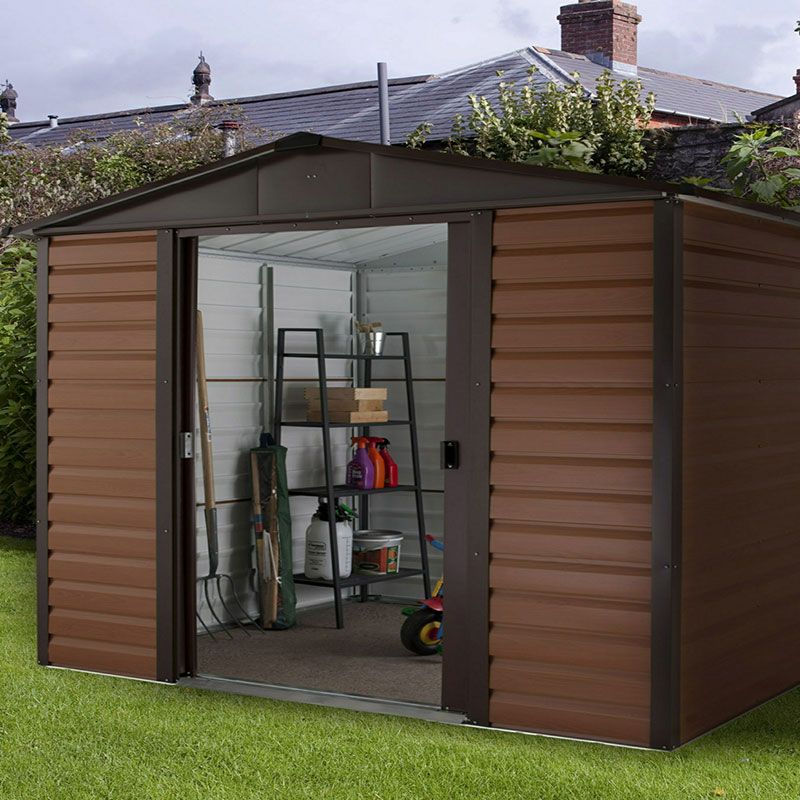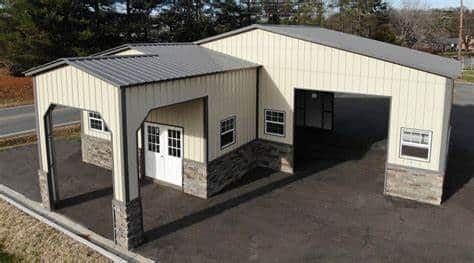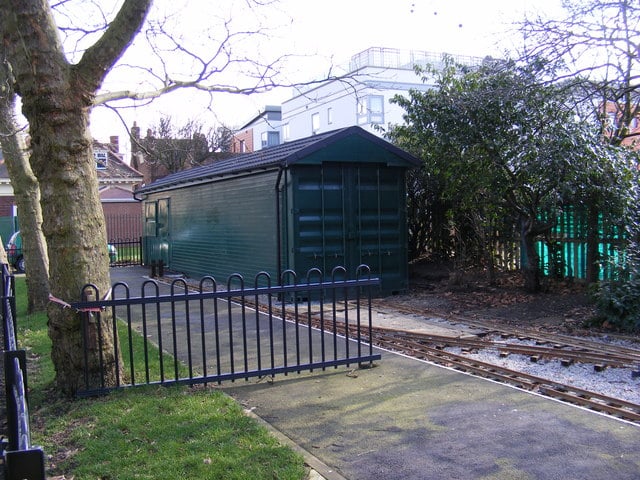In the lush, sprawling landscapes of Georgia, maximizing outdoor storage space while maintaining durability against the elements is a top priority for many homeowners and businesses alike. This is where outdoor metal sheds emerge as a versatile solution, offering both robust storage capabilities and weather-resistant qualities. In this comprehensive guide, we’ll delve into the benefits of outdoor metal sheds in Georgia, exploring their practicality, durability, and customization options.
The Versatility of Outdoor Metal Sheds:
Outdoor metal sheds offer unparalleled versatility, catering to a diverse array of storage needs across Georgia. From housing gardening tools and equipment to storing recreational gear or serving as a workshop space, these sheds provide a multifunctional solution for homeowners. Moreover, their compact footprint makes them suitable for properties of all sizes, whether nestled in urban neighborhoods or sprawling rural estates.
With Georgia’s varying climate, durability is a crucial consideration when investing in outdoor storage solutions. Metal sheds excel in this aspect, with their robust construction offering resistance against moisture, pests, and extreme weather conditions. Unlike traditional wooden structures that may succumb to rot or termite damage over time, metal sheds stand the test of time, ensuring long-lasting performance even in Georgia’s humid summers and occasional storms.
Customization options further enhance the appeal of outdoor metal sheds in Georgia, allowing homeowners to tailor these structures to their specific needs and aesthetic preferences. From choosing the size and layout to adding windows, doors, and ventilation systems, the design possibilities are virtually limitless. Whether blending seamlessly with the architecture of a suburban home or complementing the rustic charm of a countryside retreat, metal sheds can be customized to enhance the overall look and functionality of any property.
Factors to Consider When Choosing Outdoor Metal Sheds:
While outdoor metal sheds offer a myriad of benefits, several factors should be considered to ensure the optimal selection for your needs in Georgia. Firstly, it’s essential to assess the size requirements based on the intended use and available space on your property. Consider factors such as the number of items to be stored, clearance for accessing the shed, and any future expansion needs.
Additionally, evaluate the quality of construction and materials used in the manufacturing of the metal shed. Opt for sheds constructed from galvanized steel or aluminum, as these materials offer superior durability and corrosion resistance, essential for withstanding Georgia’s climatic conditions. Inspect the shed for features such as reinforced corners, sturdy doors, and a robust locking mechanism to safeguard your belongings effectively.
Another crucial consideration is the assembly process, particularly if you’re opting for a DIY installation. Choose a shed that comes with clear assembly instructions and pre-drilled components for ease of construction. Alternatively, enlist the services of professional installers to ensure the shed is assembled correctly, minimizing the risk of structural issues or leaks in the future.
Maintenance Tips for Outdoor Metal Sheds:
To prolong the lifespan and maintain the pristine condition of your outdoor metal shed in Georgia, regular maintenance is key. Start by inspecting the shed periodically for any signs of damage, such as rust spots, dents, or loose components. Address these issues promptly to prevent them from worsening over time.
Clean the exterior of the shed regularly to remove dirt, debris, and any organic matter that may accumulate, particularly in humid climates. Use a mild detergent or specialized metal cleaner, along with a soft brush or sponge, to avoid scratching the surface. Rinse thoroughly with water and allow the shed to dry completely to prevent moisture buildup.
Inspect the seals and weather-stripping around doors and windows to ensure they remain intact and effectively seal out moisture and pests. Lubricate hinges, locks, and moving parts as needed to maintain smooth operation and prevent corrosion. Lastly, trim vegetation and foliage around the shed to prevent it from becoming a breeding ground for pests or causing damage to the structure.



